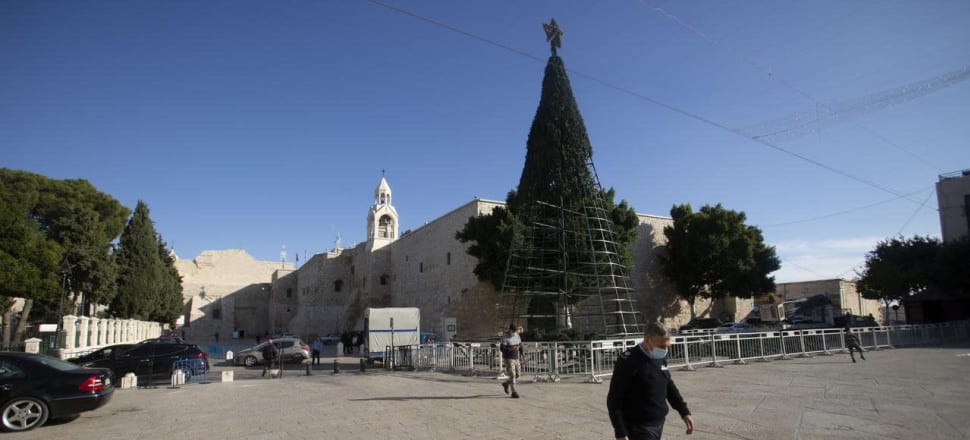Like most Holy Land Christians, Hagop Karakashian’s ceramic shop in the Old City here has always relied heavily on the presence of Christian pilgrims, especially in December.
But the narrow alleyways of his shop’s ancient neighbourhood are painfully empty this year.
“Ordinarily, we have a lot of tourists and also local people coming in and buying,” Karakashian said wistfully. “This year is the opposite. There are no tourists, and even the locals aren’t coming due to lack of income and fears of catching the virus.”
To add to the Karakashian family’s down month, they won’t be able to attend Christmas services as they usually do in Bethlehem, where the Palestinian government has imposed a closure on the city of Jesus’ birth.
“We’ll be spending Christmas at home, watching the service on TV,” he said.
Traditionally a festive time, if a busy one professionally, Christmas is usually an opportunity for the Holy Land’s tiny Christian minority, which comprises less than two per cent of the Israeli and Palestinian populations (and dwindling), to come together and shine as a community.
Annual Christmas concerts, plays, markets and prayer services have been either canceled or scaled back dramatically. Making matters worse, due to COVID-19 restrictions, family members who have emigrated are barred from returning to the Holy Land for the holidays, leaving those who remain feeling all the more isolated.
While wars and uprisings have often dampened Holy Land Christmas celebrations, said Rev Rami Asakrieh, parish priest of St Catherine’s Church in Bethlehem, 10 months without pilgrims has caused many local families – both Christian and Muslim – to plunge into poverty.
Read the article by Michel Chabin in Sight magazine.

